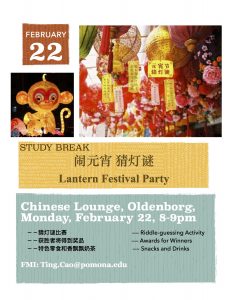Language Resident/Assistant Name: Eva Saunders
Day and Date: 11/24/2020
Language and Level (intermediate or advanced class): Intermediante/Advanced
Class theme/topics discussed: Christmas & the holidays
Goal of the class: Learning about German customs and escaping Krampus’ mine
How did you structure the class?
A) Warm-Up: With the lights off and your Zoom background set to a coal mine, tell the students they have been captured and brought to a coal mine because they opened their advent calendars too early! Impersonating Krampus for this is highly recommended & fun (I wore a Santa hat and used a flash light to make myself look frightening)
B) Give them the “escape room” game Google Sheet link and explain (as “Krampus”) how they are going to find the code word to get out (which is “Merry Christmas” in German, but backwards, see Key sheet). Stress that they are supposed to talk to each other to solve riddles together, one at a time. Then set a timer for 45-50 minutes for them to solve the questions and to guess the code word.
It’s good to remind them of the time they have left every once in a while (half time and maybe 5 minutes before, depending how they are doing on time). I plan about 5 minutes per question on average as a guideline. If they are taking longer, feel free to help them a bit by telling them if their answer is right or wrong before they type them in, to avoid detours. And giving hints or more information about a correct answer works well, too.
C) Once the game is finished, go over the answers the students provided or answer any outstanding questions about Christmas in Germany.
D) Extra activity: Watch “Cat-A-Claws”, a 2-minute Christmas themed cat movie https://vimeo.com/381605666 (this is my own production, but available publicly). Find traditions and words we talked about in the movie.
What technology, media or props did you use? (internet resources, playmobiles, handouts, etc.): Share Screen function in Zoom, Chat, Google Sheets, Vimeo, Course Website as a resource for homework and reference
What worked well in this class? What did not work?
The students enjoyed the surprise escape room very much and solved the riddles just in time. I clarified some things during the game and helped a bit to keep it moving. It was a fun way to learn!
How could this class be improved/ modified?
I’ve tried this both with just one student and a group of three students and both took about 45-50 minutes to finish it. If the group is much larger, communication might be hard so they should probably be split up into groups of three or four and you can jump from room to room to help if necessary.
If you have a more detailed lesson plan, please attach it below (OK to use target language for that). Please attach any handouts as well.
Virtual Handout in target language https://courses.pomona.edu/la-german-2020/blog/2020/11/24/13-1-class-25-11-23-2020/ (Password: GERMAN)
Note: You can use the key document for yourself and then load the blank template tab into Google Sheets to have the students work in the same document. It’s best if one student shares their screen of it so all can see what’s asked.


